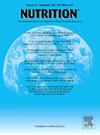维生素C在感染性疾病中的作用:综述
IF 3.2
3区 医学
Q2 NUTRITION & DIETETICS
引用次数: 0
摘要
维生素C是一种多功能营养素,具有必需的抗氧化特性,在氨基酸代谢、胶原蛋白促进和激素合成中发挥作用。长期以来,人们一直认为它有利于传染病管理,尽管其具体作用仍不确定。主流观点认为,这种功效不仅源于其在体内的氧化还原调节,还源于其对免疫系统的深远影响。本文综述了维生素C在氧化还原调控中的作用,并展示了维生素如何影响各种免疫细胞和细胞内在先天免疫信号通路,从而更新和扩展了我们以前的观点。临床上,尽管一些研究和病例系列表明维生素C在预防和(或)治疗呼吸道感染、败血症和感染性休克方面的潜在益处,但证据仍然存在争议。目前的数据不足以支持常规临床使用维生素C来治疗这些疾病,需要进一步严格的评估以建立明确的疗效和安全性。本文综述了目前维生素C的临床研究进展,总结了维生素C的主要争议及其原因,并提出了今后临床研究的方向。此外,临床前证据表明,维生素C在补充治疗“三大”传染病:获得性免疫缺陷综合征(艾滋病)、结核病和疟疾方面具有潜在作用;然而,在这些领域缺乏系统的临床研究。我们研究了相关的体外和动物研究以及临床试验,并讨论了维生素C作为治疗和(或)辅助治疗的潜在作用。本文章由计算机程序翻译,如有差异,请以英文原文为准。

The roles of vitamin C in infectious diseases: A comprehensive review
Vitamin C is a versatile nutrient with essential antioxidant properties and roles in amino acid metabolism, collagen promotion, and hormone synthesis. It has long been regarded as benefitting infectious disease management, although its specific roles remain uncertain. The dominant view is that this efficacy not only stems from its redox regulation in the body but also from its profound impact on the immune system. This review provides a comprehensive overview of Vitamin C's effects on redox regulation and shows how the vitamin influences various immune cells and cell-intrinsic innate immunity signaling pathways, thereby updating and expanding our previous perspectives. Clinically, though some studies and case series have suggested potential benefits of Vitamin C in preventing and (or) treating respiratory tract infections and sepsis and septic shock, the evidence remains controversial. The current data is insufficient to support the routine clinical use of Vitamin C in managing these diseases and requires further rigorous evaluation to establish definitive efficacy and safety profiles. This review thoroughly examines current clinical research progress on Vitamin C, summarizes the primary controversies and their underlying causes, and proposes directions for future clinical research. Furthermore, preclinical evidence shows potential roles for Vitamin C in the supplementary treatment of the “Big Three” infectious diseases: acquired immunodeficiency syndrome (AIDS), tuberculosis, and malaria; however, systematic clinical studies in these areas are lacking. We examine related in vitro and animal studies, as well as clinical trials, and discuss potential roles for Vitamin C as a treatment and (or) adjuvant therapy.
求助全文
通过发布文献求助,成功后即可免费获取论文全文。
去求助
来源期刊

Nutrition
医学-营养学
CiteScore
7.80
自引率
2.30%
发文量
300
审稿时长
60 days
期刊介绍:
Nutrition has an open access mirror journal Nutrition: X, sharing the same aims and scope, editorial team, submission system and rigorous peer review.
Founded by Michael M. Meguid in the early 1980''s, Nutrition presents advances in nutrition research and science, informs its readers on new and advancing technologies and data in clinical nutrition practice, encourages the application of outcomes research and meta-analyses to problems in patient-related nutrition; and seeks to help clarify and set the research, policy and practice agenda for nutrition science to enhance human well-being in the years ahead.
 求助内容:
求助内容: 应助结果提醒方式:
应助结果提醒方式:


